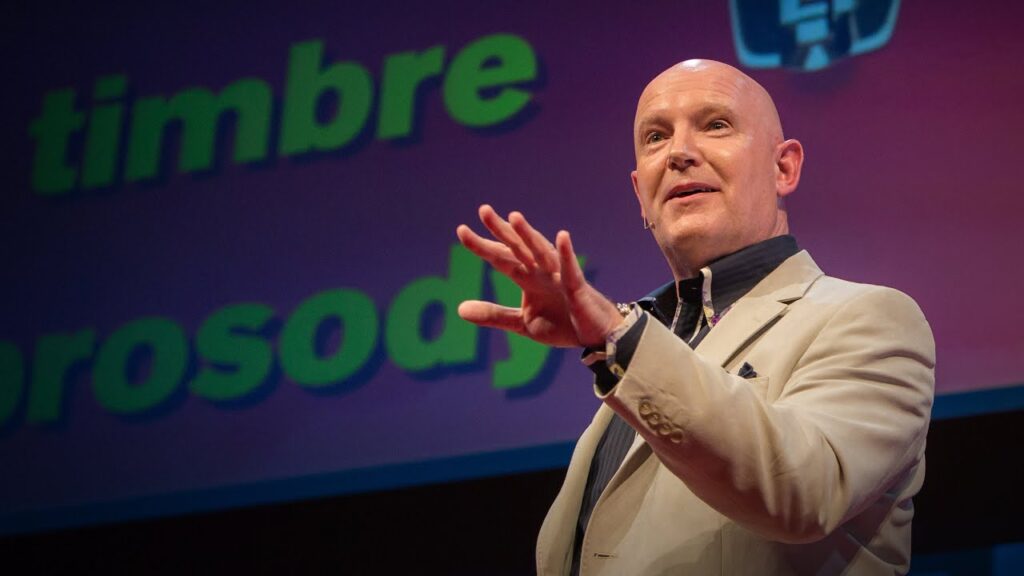The human voice is a powerful tool—one that can spark revolutions, inspire change, or simply express love and connection. Yet, many people struggle to be heard. In his engaging TED Talk, Julian Treasure explores why people often fail to hold the attention of their audience and, more importantly, how they can transform their speech to command respect and influence.
The Seven Deadly Sins of Speaking
Treasure identifies seven habits that weaken our communication and push listeners away:
- Gossip – Speaking negatively about someone who isn’t present erodes trust. If someone gossips to you, they’ll likely gossip about you.
- Judging – When people feel judged, they tune out, making real communication impossible.
- Negativity – Constantly dwelling on the downside repels listeners and makes conversation draining.
- Complaining – A habitual focus on problems rather than solutions spreads misery, not engagement.
- Excuses – Failing to take responsibility for one’s actions erodes credibility and respect.
- Exaggeration & Lying – Embellishment weakens trust, and when minor exaggerations turn into lies, credibility is lost altogether.
- Dogmatism – Presenting opinions as absolute truths turns discussions into monologues, discouraging real dialogue.
Avoiding these pitfalls is the first step to becoming a speaker worth listening to. But what should we do instead?
The Four Foundations of Powerful Speaking
To counter these bad habits, Treasure introduces the concept of HAIL, an acronym that represents the four key qualities of effective speech:
- Honesty – Speak with truth and clarity.
- Authenticity – Be yourself. People resonate with genuine voices.
- Integrity – Keep your word and be reliable.
- Love – Approach conversations with goodwill and kindness.
When we embrace these principles, our words are more likely to be received with enthusiasm rather than resistance.
The Hidden Tools of Your Voice
Beyond what we say, how we say it matters just as much. Treasure highlights a few vocal techniques that can amplify the power of speech:
- Register – Speaking from the chest creates a deeper, more authoritative voice.
- Timbre – A warm, rich tone is more appealing than a harsh or nasal one.
- Pace – Varying speed keeps listeners engaged; slowing down can add impact.
- Pitch – Adjusting pitch can add excitement or seriousness to speech.
- Volume – Speaking softly can draw people in; increasing volume can emphasize a point.
Actionable Takeaways
- Audit your speech habits – Are you falling into any of the seven deadly sins? Identify and work on eliminating them.
- Practice HAIL daily – Approach conversations with honesty, authenticity, integrity, and love.
- Develop vocal awareness – Record yourself speaking and analyze your tone, pace, and pitch.
- Engage in active listening – Communication is a two-way street; being a great speaker also means being a great listener.
- Experiment with vocal variety – Try changing your register, timbre, and pace to see how it affects engagement.
Final Thoughts
Julian Treasure’s TED Talk isn’t just about speaking—it’s about connecting. By avoiding bad habits, embracing the principles of HAIL, and mastering vocal techniques, anyone can transform the way they communicate. Whether you’re leading a meeting, giving a speech, or simply having a conversation, these insights can help ensure that your voice is heard, respected, and valued.
You Might Also Like:
- Discover Your Next Great Read: New York Times Best-Selling Books
- 7 Must-Read Books Before Turning 25
- Crack the Code to Wealth: “The Algebra of Wealth” by Scott Galloway
- Discovering True Wealth in The Book ‘The Wealth Money Cannot Buy’ by Robin Sharma (Book Summary)
- Book Summary: Just the Good Stuff by Jim VandeHei – Redefining Success
- 7 Must-Read Books for Money Management
